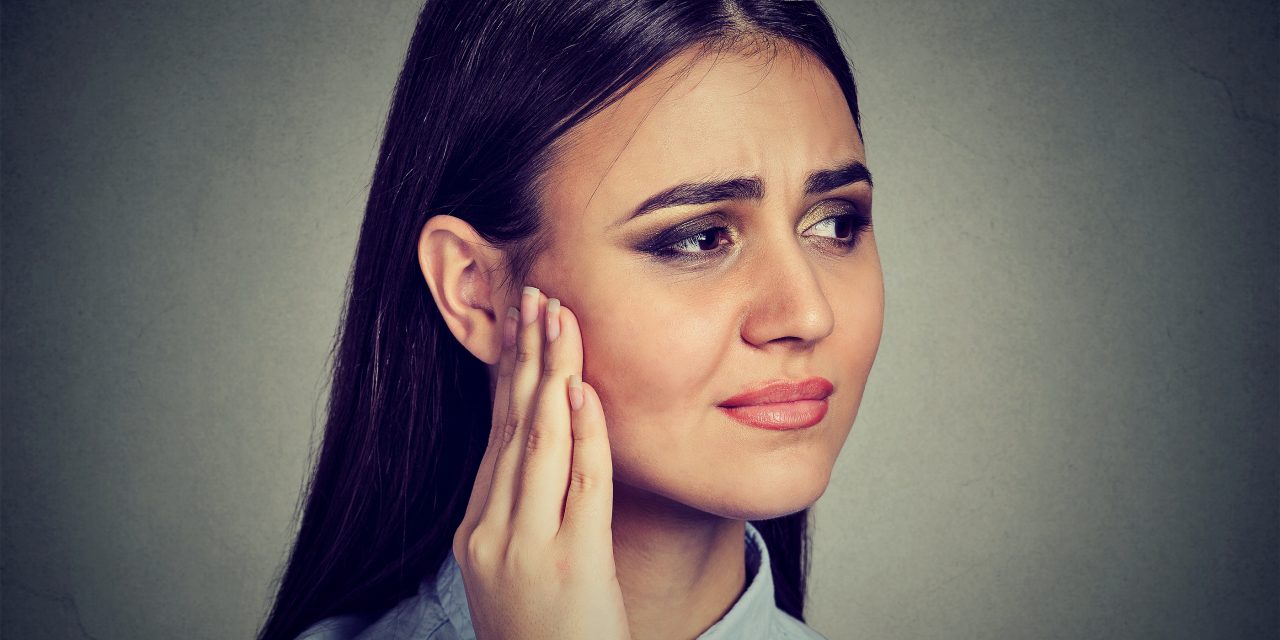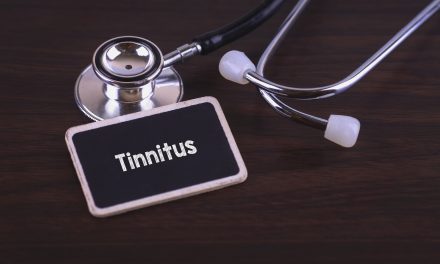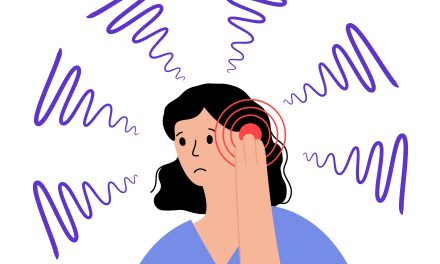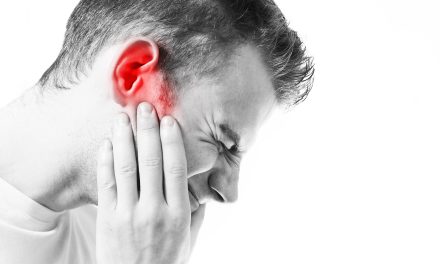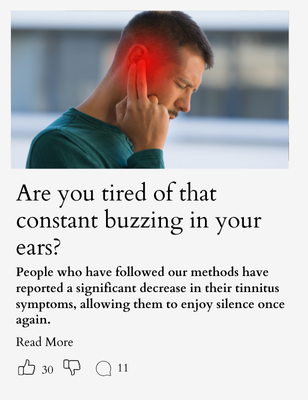Tinnitus, a constant or intermittent ringing or buzzing in the ears, is an incredibly prevalent health issue that affects millions worldwide. It can stem from various causes such as age-related hearing loss, exposure to loud noises, and even certain medications. Although tinnitus can be challenging to manage, there are several at-home remedies and lifestyle changes that can help alleviate its symptoms and improve an individual’s overall quality of life.
While there is no definitive cure for tinnitus, many of the following strategies have been proven effective in reducing its severity or frequency. These can include making necessary changes to one’s diet and incorporating sound therapy techniques, as well as engaging in behavioral therapies and regular exercise. In addition, protecting one’s ears from loud noises and understanding the potential effects of medications can help individuals better manage their tinnitus symptoms.
Key Takeaways
- Lifestyle modifications can help alleviate tinnitus symptoms
- Sound therapy and behavioral therapies are effective in managing tinnitus
- Protecting one’s ears and understanding medication effects are essential in tinnitus management
Understanding Tinnitus
Tinnitus is the perception of noise or ringing in the ears when there is no external sound present. It is a common problem that affects approximately 15% to 20% of people worldwide. While it is not considered a severe condition, tinnitus can worsen the quality of life for some individuals.
Causes of Tinnitus
Some of the common causes of tinnitus include:
- Age-related hearing loss: Hearing ability tends to decrease with age, which may result in tinnitus.
- Loud noise exposure: Extended exposure to loud sounds, such as attending concerts or using power tools, can cause temporary or permanent tinnitus.
- Earwax blockage: Excessive earwax can lead to tinnitus by blocking the ear canal and increasing ear pressure.
- Medications: Some medications are ototoxic (harmful to the ear) and can cause tinnitus as a side effect.
In many cases, the exact cause of tinnitus remains unknown.
Types of Tinnitus
Tinnitus can be categorized into two main types:
- Subjective Tinnitus: This is the most common type, where only the person experiencing tinnitus can hear the sound. Causes may include problems with the auditory nerves or the hearing mechanism in the inner ear.
- Objective Tinnitus: This is a rarer form, where a physician can sometimes also hear the noise during an examination. Causes may include problems with blood vessels, muscle contractions, or bone conditions in the middle ear.
It is essential to understand tinnitus to seek appropriate treatments and manage its impact on daily life.
Lifestyle Modifications
When it comes to alleviating tinnitus symptoms, certain lifestyle modifications can play a significant role. In this section, we will discuss two key factors: stress management and sleep hygiene. Implementing changes in these areas can lead to a considerable improvement in tinnitus symptoms.
Stress Management
Stress is known to exacerbate tinnitus, making it crucial to find effective ways to manage stress levels. Consider incorporating these practices into your daily routine:
- Relaxation Techniques: Techniques like deep breathing, meditation, and yoga can reduce stress and promote relaxation.
- Physical Activity: Regular exercise can help to lower stress levels, improve mood, and increase overall well-being.
- Social Support: Connecting with friends and family and participating in social activities can provide a sense of comfort and reduce stress.
- Professional Help: If stress is overwhelming, consider seeking help from a mental health professional or counselor.
Sleep Hygiene
Getting adequate sleep is essential for overall health, and it’s particularly important for those suffering from tinnitus. Here are some tips for improving sleep hygiene:
- Establish a Routine: Going to bed and waking up at the same time each day can help regulate your sleep cycle. Aim for at least 7-9 hours of sleep per night.
- Create a Sleep-Conducive Environment: Keep your bedroom dark, quiet, and comfortable. You can use a white noise machine or fan to help mask tinnitus sounds.
- Limit Stimulants: Avoid caffeine, nicotine, and alcohol, especially in the hours leading up to bedtime.
- Develop a Bedtime Ritual: Engaging in calming activities, such as reading a book or taking a warm bath, can help signal to your body that it’s time to sleep.
By focusing on stress management and sleep hygiene, individuals struggling with tinnitus can make significant strides in improving the condition. Small adjustments to daily habits can lead to a noticeable reduction in the severity of tinnitus symptoms.
Diet and Nutrition
A well-balanced diet can improve overall health and have a positive impact on tinnitus symptoms. In this section, we will discuss foods to avoid and recommended supplements and vitamins that may help alleviate tinnitus symptoms.
Foods to Avoid
The following list of foods can increase tinnitus symptoms or hinder the healing process:
- Caffeine: Found in coffee, tea, and some soft drinks, caffeine can increase the severity of tinnitus symptoms.
- Salt: High sodium intake can lead to increased blood pressure, which may worsen tinnitus symptoms.
- Sugar: Excessive sugar consumption can cause inflammation and instability in blood sugar levels.
- Alcohol: Drinking alcohol may intensify tinnitus symptoms or lead to temporary worsening of the condition.
- Trans Fats: Foods high in trans fats, such as fried foods and baked goods, can contribute to increased inflammation.
Consider limiting or avoiding these items from your diet to potentially reduce tinnitus symptoms.
Supplements and Vitamins
Various supplements and vitamins are suggested to improve overall health and potentially reduce the symptoms of tinnitus.
| Supplement/Vitamin | Potential Benefits for Tinnitus |
|---|---|
| Ginkgo Biloba | Improves blood flow to the inner ear, potentially reducing tinnitus symptoms. |
| Zinc | Supports immune function and may reduce tinnitus severity in those with a deficiency. |
| B Vitamins | Aids in maintaining healthy nerve function and possibly alleviating tinnitus. |
| Magnesium | May help protect against noise-induced hearing loss. |
| Melatonin | Helps improve sleep quality, which may lessen the impact of tinnitus on sleep. |
Before taking any supplements or vitamins, consult with a healthcare professional to ensure they are suitable for your unique needs. Regularly monitoring your dietary intake and making appropriate adjustments can play a role in managing tinnitus symptoms in a holistic way.
Sound Therapy
Sound therapy is an effective approach to reduce the effects of tinnitus, by either masking or modifying the noises experienced by the sufferer. This section explores two common forms of sound therapy: Masking Devices and Tailored Sound Environments.
Masking Devices
Masking devices are specifically designed to play background sounds that can help “drown out” the irritating tinnitus noises. These devices can be:
- Wearable: These are similar to hearing aids and can be worn in or behind the ear. They produce low-level white noise that makes tinnitus less noticeable.
- Non-Wearable: These devices are portable speakers or sound machines that create soothing or calming sounds, such as ocean waves or gentle rain. They can be placed in the room where an individual spends most of their time.
Advantages:
- Can provide instant relief from tinnitus symptoms
- Portable and discrete (in the case of wearable devices)
Disadvantages:
- May not be suitable for everyone
- Can only provide relief when the device is in use
Tailored Sound Environments
A tailored sound environment is a type of sound therapy that involves creating a personalized soundscape to help an individual cope with tinnitus. This can be achieved by:
- Consulting an audiologist: A professional audiologist can use specialized software to identify, analyze, and prescribe suitable sounds for an individual’s specific tinnitus profile.
- Using smartphone apps: Several apps are available that allow users to create their own customized sound environments. These apps might include features like:
- Mixing various sounds such as nature sounds or white noise
- Adjusting the volume and frequency of the sound
- Applying filters to modify the sound according to personal preferences
Advantages:
- Can be personalized to suit individual needs
- Can be a less intrusive form of sound therapy
Disadvantages:
- Might require trial and error to find the most effective sound environment
- May not provide immediate relief
Sound therapy can be a valuable tool in managing tinnitus at home. By exploring the options of masking devices and tailored sound environments, individuals can find the most suitable sound solution to alleviate their symptoms.
Behavioral Therapies
Cognitive Behavioral Therapy
Cognitive Behavioral Therapy (CBT) is a popular and effective approach to managing tinnitus. It involves identifying and addressing negative thoughts and emotions associated with the condition. Through CBT, patients can learn to restructure their thoughts and develop coping strategies to alleviate the distress caused by tinnitus.
A typical CBT session might include:
- Identifying triggers and thought patterns associated with tinnitus
- Challenging negative beliefs and emotions
- Developing relaxation techniques to manage stress
- Learning problem-solving skills to cope with difficult situations
Tinnitus Retraining Therapy
Tinnitus Retraining Therapy (TRT) is another widely used behavioral therapy that aims to help patients habituate to the noise created by tinnitus. The primary focus of TRT is to train patients in diverting their attention and emotional reactions related to tinnitus. This therapy mainly relies on two techniques:
- Counseling: It aids in understanding the causes of tinnitus and addressing misconceptions. A trained professional helps patients develop a neutral attitude towards tinnitus by providing accurate information and support.
- Sound therapy: This component aims to minimize the perception of tinnitus by using background noise. Patients are encouraged to use background sounds, such as low-level white noise, fans, or soft music, to render the tinnitus noise less noticeable.
Both Cognitive Behavioral Therapy and Tinnitus Retraining Therapy offer promising results when it comes to managing tinnitus at home. To achieve the best outcomes, patients should consult professionals and participate in regular treatment sessions. Remember that results may vary, and it is essential to find a therapy that suits one’s individual needs and preferences.
Home Remedies
Herbal Treatments
There are several herbal treatments that may help reduce the symptoms of tinnitus. It is essential to note that while some individuals may find relief with these remedies, they may not work for everyone, and it is crucial to consult with a healthcare professional before trying any new treatments.
- Ginkgo Biloba: This herb is believed to improve blood flow and reduce inflammation, which could help alleviate tinnitus symptoms. The recommended dose is usually 120-240 mg per day, taken in two or three divided doses.
- Black Cohosh: This plant has been used for various health conditions, including tinnitus. Some individuals have reported relief from tinnitus symptoms after using black cohosh supplements. The typical dosage is 20-40 mg twice daily.
Essential Oils
Essential oils are another alternative treatment option for tinnitus. These oils are extracted from plants and have various therapeutic properties. To use essential oils for tinnitus, mix a few drops with a carrier oil like almond or coconut oil, and massage it gently onto the affected area or inhale the aroma through a diffuser.
Here is a table summarizing some commonly used essential oils for tinnitus relief:
| Essential Oil | Benefit |
|---|---|
| Lavender | Calming, reduces anxiety and stress |
| Juniper | Cleanses and detoxifies the body |
| Cypress | Improves blood circulation |
| Geranium | Balances hormones and improves mood |
Remember that individual results may vary, and it is essential to consult with a healthcare professional before starting any new treatment. In addition to herbal treatments and essential oils, other home remedies like yoga, meditation, and acupuncture may also provide relief for some individuals living with tinnitus.
Exercise and Tinnitus
Cardiovascular Workouts
Engaging in cardiovascular workouts can have a positive impact on tinnitus symptoms. Regular exercise helps improve blood flow, reducing stress and promoting overall wellbeing. Some recommended exercises include:
- Running or jogging
- Swimming
- Cycling
- Aerobics classes
| Exercise | Duration | Frequency |
|---|---|---|
| Running | 30-45 minutes | 3-5 times/week |
| Swimming | 20-30 minutes | 2-4 times/week |
| Cycling | 30-45 minutes | 3-5 times/week |
| Aerobics | 45-60 minutes | 2-3 times/week |
Remember to always consult with a medical professional before starting any new exercise program, especially if you have existing health conditions.
Yoga and Tinnitus
Another exercise that may help alleviate tinnitus symptoms is yoga. Practicing yoga regularly can improve flexibility, balance, and strength while promoting relaxation and stress reduction. Incorporating specific yoga poses that focus on the neck and head can potentially alleviate tinnitus symptoms. These poses include:
- Neck rolls: Gently rolling the head in a circular motion.
- Shoulder stand: Lying on the back and lifting the legs and hips while supporting the lower back with hands.
- Child’s pose: Kneeling on the ground, sitting back on the heels, and stretching the arms forward with forehead resting on the ground.
In addition to these poses, incorporate mindfulness and meditation in your yoga practice to further reduce stress. It’s important to remember that results may vary, and these exercises may not be a complete cure for tinnitus. However, they could help in managing the condition and improving overall quality of life.
Ear Protection Strategies
Avoiding Loud Noises
One of the essential steps in curing tinnitus is to prevent further damage to the ears. A significant cause of tinnitus is exposure to loud noises. It is crucial to be aware of the environments that may lead to excessive noise levels and take precautionary measures. Here are some tips to avoid loud noises:
- Keep the volume of music devices and television at moderate levels.
- When attending concerts or large gatherings, try to stay away from speakers.
- Choose quiet recreational activities over those that expose you to loud sounds.
- Be mindful of noises in the workplace, and discuss with management if sound levels are too high.
Using Earplugs
Another effective way to protect your ears and reduce the risk of aggravating tinnitus is by using earplugs. They can help minimize the impact of loud noises, making them an essential tool for ear protection. Here are some situations where earplugs can be beneficial:
- Attending concerts or sporting events: Earplugs can reduce the overall sound exposure and protect your ears from potential damage.
- Operating loud machinery: If you work in an environment with persistent loud noises, using earplugs can help prevent work-related hearing issues.
- Swimming: Waterproof earplugs can guard against waterborne infections and protect the delicate inner ear from water damage.
Choosing the right earplug is equally important, as different types provide varying levels of protection. The following table summarizes the available options:
| Type of Earplug | Protection Level | Ideal Usage |
|---|---|---|
| Foam Earplugs | High | Concerts, working with machinery |
| Silicone Earplugs | Medium | Swimming, sleeping |
| Custom-Molded Earplugs | Customizable | Professional musicians, long-term use |
By incorporating these ear protection strategies, individuals can proactively support their journey towards curing tinnitus and ensuring better well-being overall.
Managing Medications
Ototoxic Drugs
Ototoxic drugs are medications that can potentially cause tinnitus as a side effect. These include certain antibiotics, diuretics, nonsteroidal anti-inflammatory drugs (NSAIDs), and some cancer medications. It is important to be aware of the potential risks associated with these medications. If you suspect that a medication you are taking may be contributing to your tinnitus, consult with your healthcare provider.
Common Ototoxic Drugs:
- Antibiotics: Aminoglycosides, Erythromycin, Vancomycin
- Diuretics: Furosemide, Bumetanide
- NSAIDs: Aspirin, Ibuprofen, Naproxen
- Cancer Medications: Cisplatin, Carboplatin
Alternative Medications
If you and your healthcare provider determine that your current medication may be causing or worsening your tinnitus, it is possible to explore alternative medications. Consider the following steps:
- Discuss with your healthcare provider: Have an open conversation with your healthcare provider about your concerns regarding tinnitus and your current medication. They may suggest alternative medications or adjustments to your current treatment plan.
- Monitor your symptoms: As you transition to alternative medications, keep a record of your tinnitus symptoms. This can help you and your healthcare provider track any changes or improvements.
- Be patient: Adjusting to a new medication may take time. Allow your body time to acclimate and work with your healthcare provider to determine the most effective treatment plan for you.
Remember, never stop or change medications without the guidance of a healthcare professional. They can help you safely transition to alternative treatment options that may better suit your needs and improve your tinnitus symptoms.
Professional Consultation
When to See a Doctor
Although tinnitus can be managed at home, it is important to seek professional advice under certain circumstances. If tinnitus is accompanied by severe symptoms or suddenly worsens, professional consultation should not be delayed. Here are some conditions that warrant a doctor’s visit:
- Abrupt onset: If tinnitus suddenly appears or worsens without any apparent reason.
- Severe symptoms: If the sound level becomes unbearable, affecting daily life and mental well-being.
- Associated symptoms: When tinnitus is accompanied by dizziness, hearing loss, or ear pain.
By promptly consulting a healthcare provider, a proper evaluation of the underlying cause can be done, leading to more effective treatments.
Types of Healthcare Providers
Different healthcare professionals can contribute to the management and treatment of tinnitus. The table below highlights the main providers and their roles:
| Provider | Role in Tinnitus Management |
|---|---|
| Audiologist | Performs hearing assessments, provides hearing aids, and offers sound therapy solutions. |
| Otolaryngologist (ENT) | Diagnoses and treats ear, nose, and throat disorders, identifying underlying medical causes of tinnitus. |
| Psychologist | Offers coping strategies and therapy for stress, anxiety, or depression related to tinnitus. |
It’s crucial to consider the advice and recommendations provided by these professionals to achieve the best possible outcome in treating tinnitus.
Technology and Apps
Mobile Applications
There are several mobile applications available in the market that claim to help alleviate the symptoms of tinnitus. These apps focus on sound therapy, which uses external sounds to nullify or reduce the perception of tinnitus. Some popular apps include:
- Tinnitus Relief: This app offers a collection of sounds designed to promote relaxation and divert attention from the ringing in the ears.
- White Noise Generator: A useful app that generates a wide range of white noise frequencies to mask the ringing or buzzing sounds caused by tinnitus
- ReSound Tinnitus Relief: An app from the hearing aid manufacturer ReSound, which provides a combination of sound therapy, relaxation techniques, and advice for managing tinnitus.
Important to note: Although these apps may provide temporary relief, they are not a definitive cure for tinnitus.
Wearable Devices
Wearable devices such as hearing aids and tinnitus maskers can be beneficial in managing tinnitus symptoms. These devices, when offering sound therapy, help to lessen the intensity of tinnitus by providing a constant external sound that distracts from the internal ringing or buzzing.
| Device Type | Description |
|---|---|
| Hearing Aids | Apart from addressing hearing loss, certain models are equipped with tinnitus management features, which include sound generators or built-in programs to reduce the perception of tinnitus. |
| Tinnitus Maskers | Similar to hearing aids in appearance, maskers generate a variety of sounds which aim to distract the user from their tinnitus symptoms. |
Before choosing a wearable device, it is advisable to consult a medical professional to determine the best option for your specific tinnitus condition. Remember, these devices provide symptomatic relief and not a long-term cure.
While technology offers different ways to help ease the symptoms of tinnitus, it is essential to consult a doctor or an audiologist for proper diagnosis and treatment. Implementing a healthy lifestyle, stress management, and relaxation techniques can also help improve the overall tinnitus experience.
Frequently Asked Questions
What home remedies can help reduce tinnitus symptoms?
Several home remedies can potentially help relieve tinnitus symptoms. Masking the noise with background sounds such as white noise or calming music may alleviate discomfort. Reducing caffeine and alcohol intake, practicing relaxation techniques, and maintaining a regular sleep schedule are also beneficial strategies for managing tinnitus.
Are there any effective ear drop solutions for managing tinnitus?
There are various over-the-counter ear drops advertised for tinnitus relief, but their effectiveness varies. While some individuals report experiencing relief using ear drops, it is essential to consult with a healthcare professional before using any new treatment. Ear drops may not work for everyone, and in some cases, they may worsen symptoms or cause other side effects.
Can specific massage techniques provide relief from tinnitus?
Certain massage techniques focusing on the head, neck, and shoulder areas may improve blood flow and reduce muscle tension, potentially providing tinnitus relief. Techniques such as craniosacral therapy, trigger point therapy, and myofascial release can be helpful for some individuals. However, it is vital to consult with a certified massage therapist who specializes in treating tinnitus patients.
What natural methods are known to alleviate tinnitus discomfort?
There are several natural methods that people use to alleviate tinnitus discomfort. Incorporating relaxation techniques like deep breathing exercises, meditation, and yoga can help manage stress and reduce tinnitus symptoms. Additionally, herbal supplements such as Ginkgo biloba and zinc have been reported to provide relief, but more research is needed to support their efficacy.
Is it possible for tinnitus to resolve on its own and why might this occur?
In some cases, tinnitus may resolve on its own, particularly if the cause is temporary, such as an ear infection or exposure to loud noise. This resolution can occur once the triggering factor is addressed or removed, or the body may naturally adapt and no longer perceive the sound as significant. However, it is important to consult with a healthcare professional for proper diagnosis and treatment, as tinnitus may be chronic and persist despite these efforts.
What is the most trusted non-medical treatment for tinnitus relief?
Cognitive-behavioral therapy (CBT) has shown considerable success in helping individuals cope with tinnitus. This psychological therapy approach assists patients in managing their reactions to the symptoms, ultimately reducing their impact on daily life. Although CBT may not eliminate the noise itself, it can help to significantly improve overall quality of life for those living with tinnitus.

